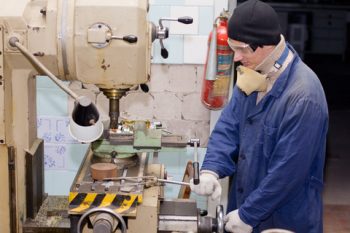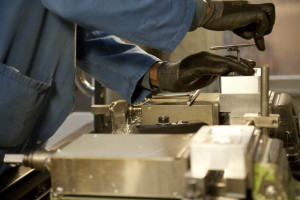
Precision Engineering is the process of making things with a high level of precision. This could be a component part that goes into making a larger product, mass produced widgets, reverse engineered parts to replace one that has gone end of life or a new product all together.
In a manufacturing situation, it usually encompasses the production of highly specific components, machinery, equipment or systems for a range of industry uses. Basically, anything that requires a great deal of precision.
Any good Precision Engineering firm will also offer design services to help solve complex problems and will work with their clients to come up with solutions. It could be in the way a new product needs to function, reverse engineering to understand how something already in existence works or a piece of machinery that is needed to perform a specific job and it’s not clear how to achieve this.
Taking all of this into account, the life of a Precision Engineer is an interesting one and in a manufacturing sense, it can be a great achievement to solve a problem and see the results at the end of it. They use a combination of skill, knowledge and experience alongside the support of machinery and technology to produce results and this is why it is so valuable to the manufacturing industry.
Why is Precision Engineering so Valuable in Manufacturing?
 Manufacturing would not be where it is today without precision engineering. More manual methods are unable to manage the low tolerance to measurement deviations and the need to produce the exact same detail again and again on a consistent basis. It cannot handle today’s requirements for finer and finer details whilst maintaining the needs of mass production.
Manufacturing would not be where it is today without precision engineering. More manual methods are unable to manage the low tolerance to measurement deviations and the need to produce the exact same detail again and again on a consistent basis. It cannot handle today’s requirements for finer and finer details whilst maintaining the needs of mass production.
The more precise the needs of modern machinery, the more specific is the need of the machinery to make it. Using computer programming teamed with skills, knowledge and expertise, this combination is what creates the value to manufacturing.
Some of the benefits of precision engineering are:
Life Span
Parts have less wear and tear when they do not grate against other parts. Precisely mad components therefore last longer than those manufactured with more manual methods.
Lower Costs
As well as components lasting longer, precision engineering can also reduce the initial costs, partly due to a decrease in wastage and partly because production is faster and more accurate.
Reliable
Mass producing to such detail means that there is a much lower failure rate, it may be a small margin, but over mass production this can add up. Removing the human error encountered with manual manufacturing also reduces the failure rate.
In summary, it is clear that whilst there will always be a place for manual manufacturing techniques, it is also easy to see the benefits of precision engineering in manufacturing. Not only does it mean the production of identical components, quickly and cost effectively, it also means that we can now produce products that would never have been possible to produce in the past.





